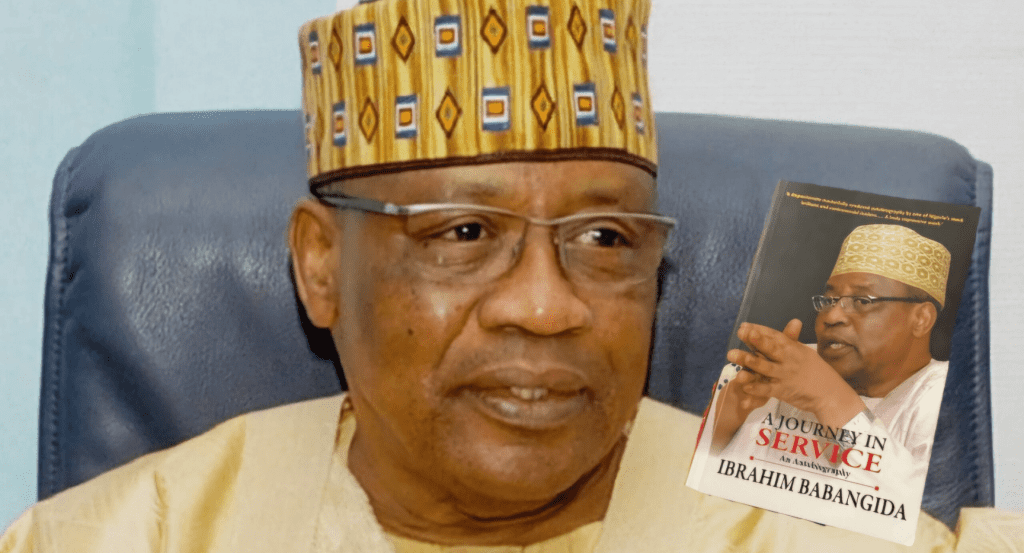Nigeria’s former military president, Ibrahim Badamasi Babangida, has penned a book that sheds light on the country’s political history, governance, and military rule. The long-anticipated memoir provides in-depth details of his time in power, controversial decisions, and the untold stories behind significant national events.
The book, which has been the subject of public curiosity for years, is a firsthand account of Babangida’s leadership and the intricacies of Nigeria’s military governance. It covers critical periods such as the annulled June 12, 1993, presidential election, the Structural Adjustment Programme (SAP), and key diplomatic relations during his tenure.
Inside Ibrahim Babangida’s Book: A Chronicle of Power and Politics
Ibrahim Babangida’s book provides a rare glimpse into Nigeria’s corridors of power. The memoir explores his rise in the military, his eventual ascension to the presidency, and the political maneuverings that defined his era.
One of the most captivating sections of the book delves into the annulment of the June 12 election, widely believed to have been won by Chief M.K.O. Abiola. Babangida offers fresh insights into the decision, explaining the pressures and concerns that led to the controversial move.
Additionally, the book details Nigeria’s economic policies under his administration, including the Structural Adjustment Programme (SAP), which was implemented to revive the economy but led to widespread hardship. Babangida explains the rationale behind SAP and reflects on its successes and failures.
Key Revelations from Ibrahim Babangida’s Book
Babangida’s book goes beyond politics to highlight key international and domestic affairs that shaped Nigeria. Some of the most striking revelations include:
- The Real Story Behind June 12, 1993: Babangida narrates the untold events leading up to and following the election annulment.
- His Relationship with Fellow Military Leaders: The book sheds light on his dealings with prominent military figures like General Sani Abacha and General Olusegun Obasanjo.
- Nigeria’s Foreign Policy Under His Rule: The memoir examines Nigeria’s international alliances and how they influenced the nation’s economic and political direction.
- Reflections on Leadership: Babangida shares personal insights on governance, decision-making, and his vision for Nigeria.
The Impact of Ibrahim Babangida’s Book on Nigeria’s Political Landscape
The release of Ibrahim Babangida’s book is expected to spark renewed debates about his tenure and its impact on Nigeria. Historians, political analysts, and the general public will find the memoir invaluable in understanding the complexities of Nigeria’s governance.
The book also serves as a crucial resource for scholars studying Nigeria’s military and political history. By offering an insider’s perspective, Babangida provides a unique narrative that challenges widely held opinions about his administration.
Conclusion: Why Ibrahim Babangida’s Book is a Must-Read
Ibrahim Babangida’s book is a significant contribution to Nigeria’s historical records. Whether you agree with his leadership style or not, the memoir offers an unfiltered account of key events that shaped the nation.
For those seeking to understand Nigeria’s past, present, and future, this book provides essential knowledge. It is not just a memoir—it is a historical document that will influence discussions on governance, democracy, and leadership for years to come.




















